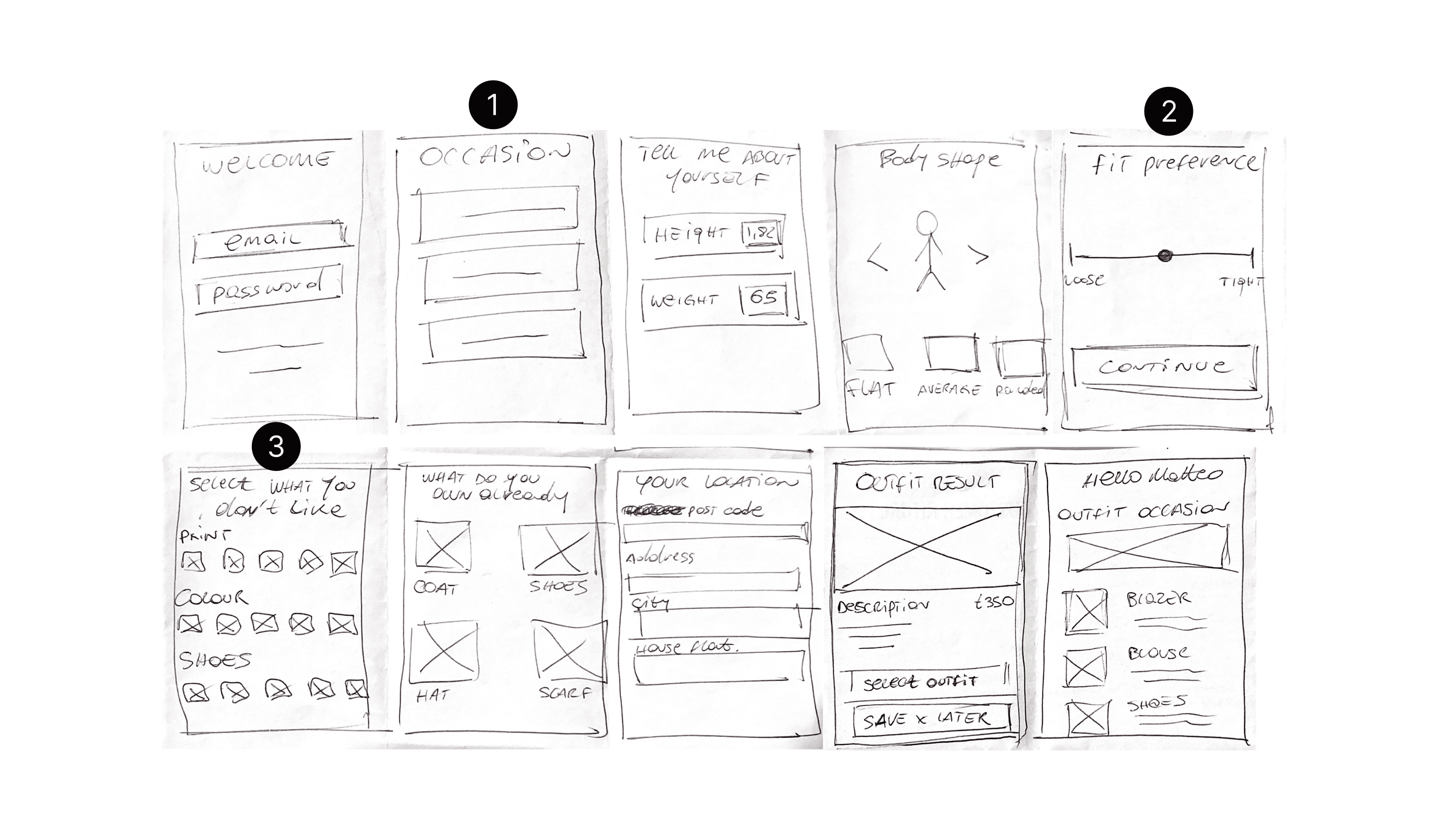Tools
Figma, Notion
Timeline
6 months
Role
Product designer
DISCOVERY
Research interviews
Online research & statistics
Competitive analysis
User persona
DEFINE
Synthesis
Design challenge
DEVELOP
User flow
Sketches
Wireframe
Usability testing
DELIVER
Style guide
Key takeaways
Next steps

Understanding the client experience
To start off, I took advantage of my professional experience and working in a boutique gave me the advantage to ask questions to “real clients” and also professionals from the fashion industry.
1
Price consciousness
A significant majority of participants are highly price-conscious when it comes to choosing garments.
2
Brand Comparison
People tend to engage in extensive brand comparison before making a purchase.
3
Hybrid shopping first
Individuals value the online shopping convenience but they still maintain the “try-on” experience.
Gathering online statistics
In 2022, clothing sector is the first online category with the highest percentage accounting for 43% in the UK.
Of people in UK between the ages of 25 and 44, said they use both in-store and online channels, promoting a hybrid shopping.
I like
Showing products with top ratings
I don’t like
Available only for a period of time throughout the day

I like
Provides picture of type of different garments as an example
I don’t like
Limited options with selected brands

I like
Simple and easy to use interface, no icons or misleading buttons.
I don’t like
Complex process to get a result
Defining the research
1
A significant 60% of UK consumers prefer a hybrid shopping approach, utilising both in-store and online channels to make their purchases.
2
The fashion market has limited direct competition, with only one platform, "Stichfix," offering personalised outfit with a limited group of brands.
3
Most people nowadays want to dress nicely without spending a fortune due to economic uncertainty.
User Flow
1
Absence of login page
Users jumped into the application without logging in, making it difficult to have a profile and save possible outfits.
2
Redundancy
There was a group of 3 interfaces including the avoid feature, users found it really repetitive.
3
No more options
Users did not have the opportunity to access a comprehensive list of items included in the outfit.
Sketches
1
Occasion selector
Empowers the user to go in depth and give extra details for a more tailored outfit recommendation.
2
Fit preference
It allows the users to express the desired fit for their outfit.
3
Printed filter
With a simple tap, users can easily exclude prints that don't align with their preferences.
Feedback from usability testing
Positive comments
Style/fit cards along with selecting your own items were voted 8/10
Pain points
Issues with readability and lack of pictures in “my outfit page”
Idea/opportunity
“I would like have a spot where I have my saved outfits and I can see the availablity in stock”
High fidelity “before & after”
BEFORE
AFTER
BEFORE
AFTER
BEFORE
AFTER
Empowering fashion exploration
Individuals can personalise their fashion experience by choosing style, fit, colours and preferred items.

Inputting user details for tailored recommendations
The user can input specific details, including height, waist measurement, shoe size, budget and more, to customise the outfit."

Personalise your style journey with the styling questionnaire
Individuals can personalise their fashion experience by choosing style, fit, colours and preferred items.

05 STYLE GUIDE
Typography
Poppins
Google fonts
Aa
REGULAR
Aa
MEDIUM
Aa
SEMIBOLD
100
#ffffff
200
#f7f7f7
300
#D7D7D7
400
#848484
500
#5C5C5C
600
#484848
700
#111111
D7D7D7
FFFFFF

Animal

Check

Camouflage

Stripe

Floral

Geometric

Abstarct

Plaid
Interaction
Icons
06 FINAL EVALUATION
1
2
1
2
3
TAKEAWAY 1
TAKEAWAY 2
Thanks!
Thanks for taking your time to visit my portfolio, I hope to see you soon.


























